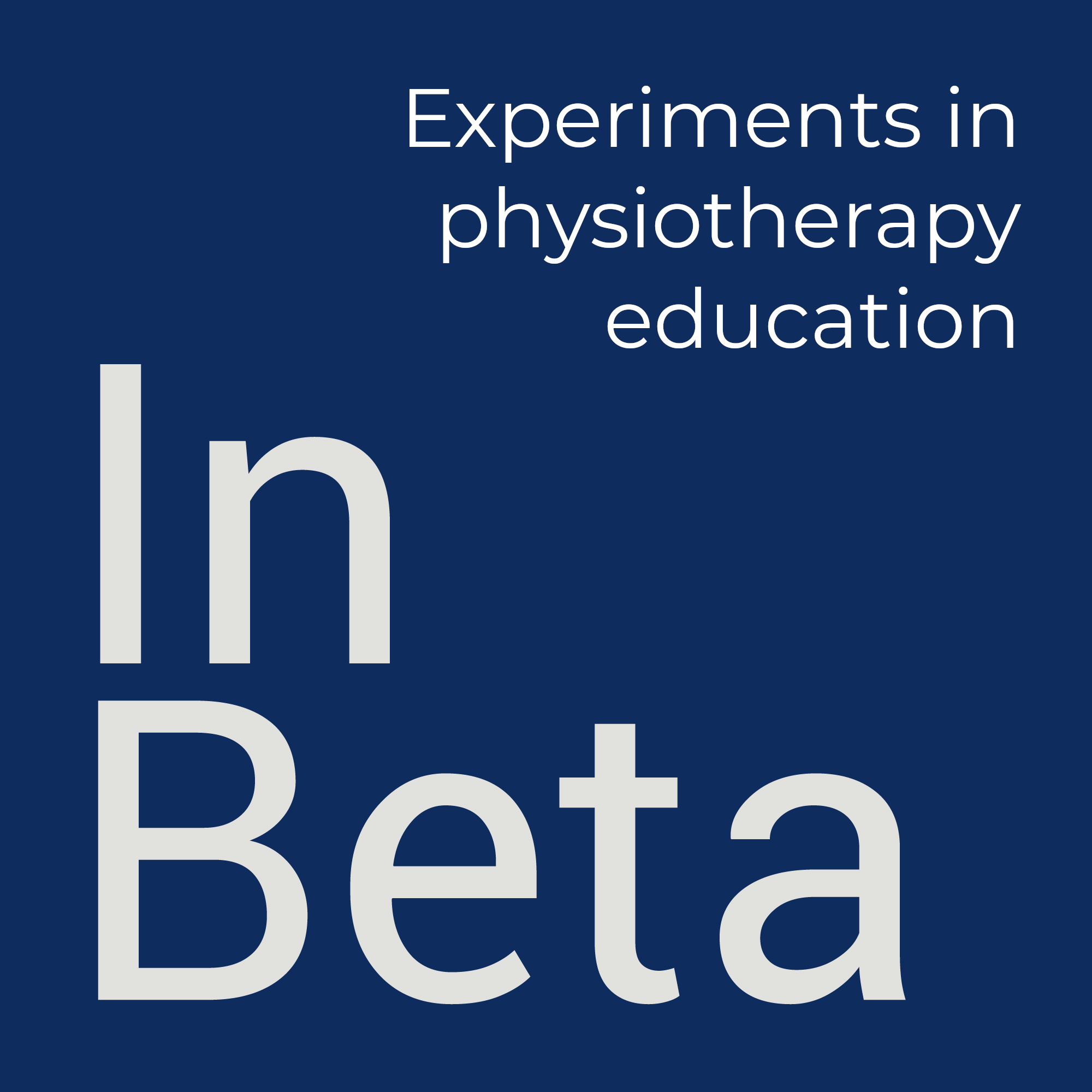
This episode is part of a short series that was published as part of the In Beta 2022 Unconference. Thank you to Dave Nicholls from AUT University for this contribution.
For the last 30 years, we have been moving towards a new era in healthcare and education, an era that has accelerated rapidly during COVID. This is the era of post-professionalism, in which the established and orthodox professions, like physiotherapy, become increasingly de-centred from healthcare. Healthcare is becoming increasingly personal, consumer-driven, and individualised, and high-income societies are increasingly looking to activity and personal responsibility as therapeutic tools, replacing our ‘old’ reliance on hands-on treatment, rehabilitation, and centrally-organised care. Many physiotherapists are embracing this move, perhaps unaware of its implications for the physiotherapy profession as a whole. But what will happen when people can glean everything they want from online tools; governments no longer feel compelled to subsidise the profession’s training and work; and the body-as-machine becomes passé? Dave’s recent book, Physiotherapy Otherwise, tackles this question head on, and in this talk he explores some of the drivers of post-professionalism and some of the surprising effects it might have for the physical therapies.
Additional resources
- Nicholls, D. (2021). Physiotherapy Otherwise. Tuwhera Open Access books (link goes to full-text PDF).
- Critical Physiotherapy substack.
- Burns, E. A. (2019). Theorising professions: A sociological introduction. Palgrage Macmillan.
- Nancarrow, S., & Borthwick, A. (2021). The allied health professions: A sociological perspective. Policy Press.
How to engage with this podcast for the Unconference
- Listen to the podcast taking breaks in between sections as you wish.
- Make a note of your key reflections and possibly share these with other participants.
- Join a discussion with other unconference participants on the topic and the reflections that it has stimulated.
This podcast it includes some discussion to make you think about the possible future of physiotherapy education and reflect on your responses. We suggest that you listen to the podcast away from your desk. You might choose to listen whilst you go for a walk or a run in your local area, or you could find somewhere to sit and listen quietly away from other screens and distractions.
The podcast is divided into different sections with notices to pause at key moments. You can leave the podcast running and listen to it all in one go, or you can pause the podcast after the notices to make brief notes on your thoughts as you go, but you don’t have to record and share your response to every question.

Dave Nicholls is a Professor of Critical Physiotherapy in the School of Clinical Sciences at AUT University in Auckland, New Zealand. He is a physiotherapist, lecturer, researcher and writer, with a passion for critical thinking in and around the physical therapies. David is the founder of the Critical Physiotherapy Network, co-founder and chair of the International Physiotherapy History Association, and founding Executive member of the Environmental Physiotherapy Association. David’s own research work focuses on the philosophy, sociology, and critical history of physiotherapy, and considers how physiotherapy might need to adapt to the changing economy of health care in the 21st century. He is also very active on social media, writing weekly on contemporary critical physiotherapy issues.

